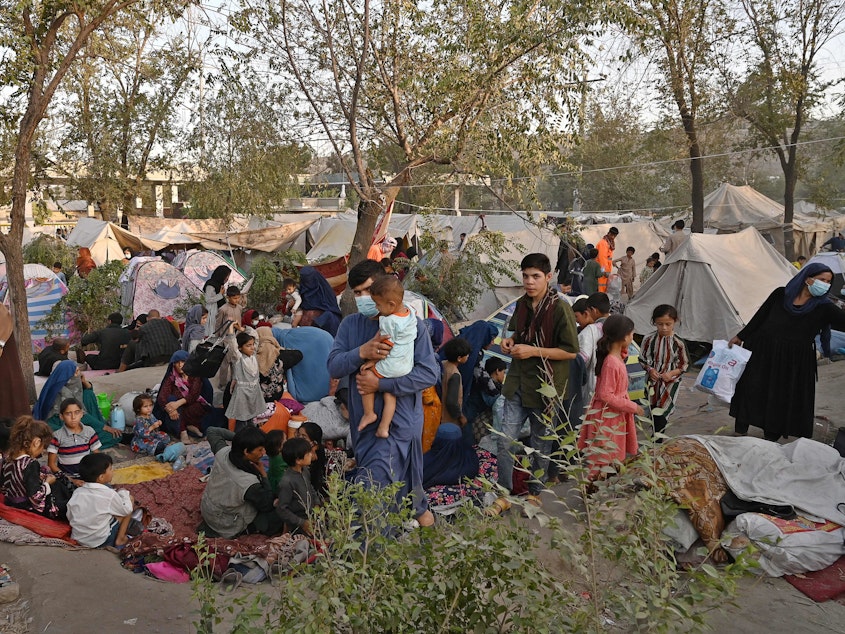The Taliban Now Controls Two-Thirds Of Afghanistan

As of Thursday morning, the Taliban now has control of 10 provincial capital cities — effectively putting them in control of two-thirds of Afghanistan.
Morning Edition spoke to Lynne O'Donnell, a journalist based in the capital city Kabul for Foreign Policy.
O'Donnell says things on the ground in Kabul "feel like a city under siege in a besieged country":
People are flooding into Kabul from neighboring regions.
Public parks in Kabul have become camps for displaced people.
Sponsored
Food and fuel prices are rising as the Taliban blocks off import routes.
Conditions in the Taliban-controlled parts of the country are "brutal":
The Taliban is rounding up people who have worked for the U.S. Military or Afghan government.
O'Donnell said the atrocities on the battlefield are "horrific" and include bodies being mutilated and other things O'Donnell wouldn't go into on air.
Women are being told to stay in their homes, unless accompanied by a male relative.
Sponsored
Women are also being told they'll be rounded up and married off to Taliban fighters.
Girls in those regions are being taken out of school, and girls schools are closed.
O'Donnell says there's a very real fear that Kabul might be the next city to fall under Taliban control. In an interview Thursday with Morning Edition, Pentagon Press Secretary John Kirby says what's next for Kabul is up to Afghan forces.
"It doesn't have to be that way," Kirby said. "It really depends on the kind of political and military leadership that the Afghans can muster to turn this around."
Afghan forces just appointed a new army chief and a new head of the special operations command. O'Donnell says it's difficult to know now what will come from these appointments.
Sponsored
This story originally appear on the Morning Edition live blog. You can hear the audio version of this conversation on Up First. [Copyright 2021 NPR]
